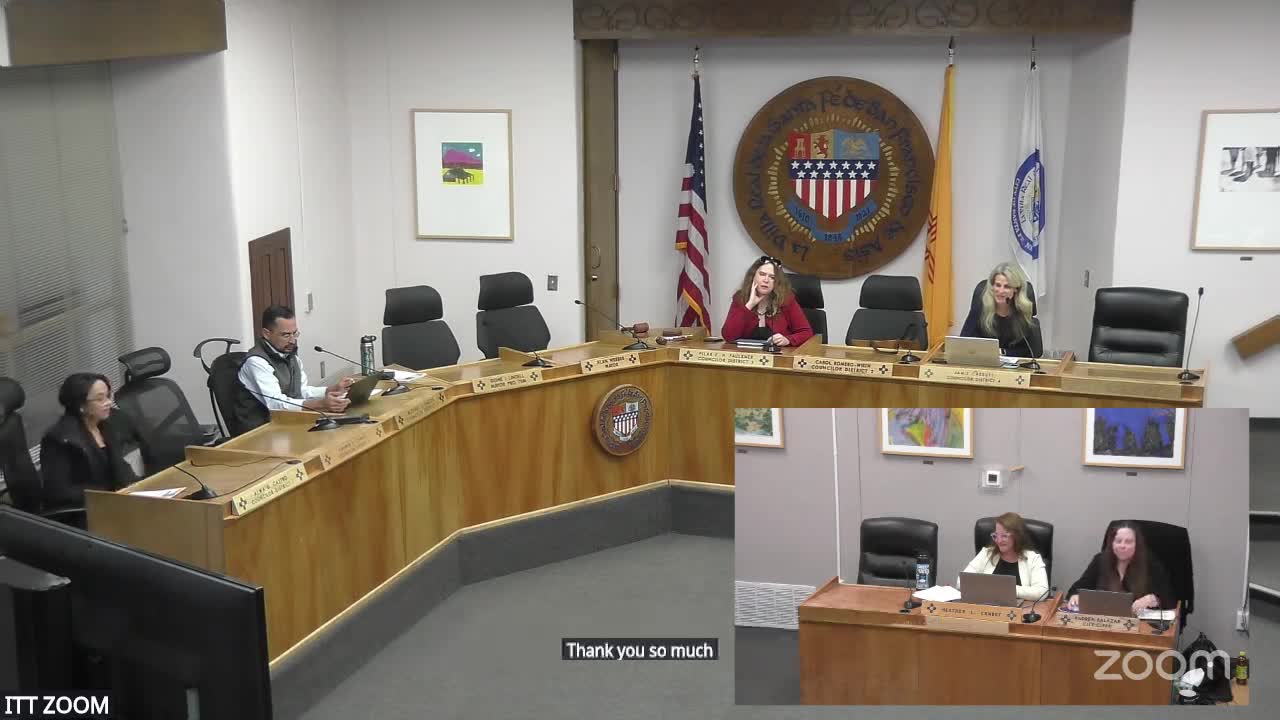Santa Fe committee hears progress on youth community violence interruption pilot
Get AI-powered insights, summaries, and transcripts
Subscribe
Summary
Sandy Emery, program manager for youth and family services for the City of Santa Fe, told the Quality of Life Committee on Nov. 6 that the Youth Community Violence Interruption pilot was developed after three fatal youth gun-violence incidents in 2020 and has since expanded into a multi-agency effort.
Sandy Emery, program manager for youth and family services for the City of Santa Fe, told the Quality of Life Committee on Nov. 6 that the Youth Community Violence Interruption pilot was developed after three fatal youth gun-violence incidents in 2020 and has since expanded into a multi-agency effort. "This pilot was really developed ... as a response to youth violence happening in the community in 2020," Emery said, and staff are seeking a community-informed name for the program.
Dr. Elizabeth Silva, YCVI consultant, described a rapid acceleration of work in 2025 and a program structure that includes a YCVI accountability task force that meets twice monthly and an advisory council that meets quarterly. Silva said the task force is community-led, case-specific and uses a peer model with family and community integration.
Chanel Delgado, Santa Fe County youth and family services program manager, said referral pathways are expanding. She said the pilot now accepts referrals from the First Judicial District Attorney's Office and the Juvenile Probation Office and that conversations are underway with the Children, Youth and Families Department (CYFD) to secure additional referrals. Eligibility has been narrowed in practice to youth up to age 24 with a history of violence, a social referral for violence interruption, or a potential threat of retaliation; parental agreement rules differ by age (parents/guardians agree for children under 14; youth and guardians must agree for those 14 and older).
Presenters said funding comes from multiple sources and that about 95% of YCVI funding goes directly to community providers. Emery said the initial ARPA investment for youth violence was $365,000 and that the department had increased its investment to $1.2 million, with approximately $1.1 million going to community partners. Silva said the New Mexico Department of Health increased the program's Violence Prevention Fund allocation by $400,000 and has asked the pilot team to help build statewide evaluation measures.
Presenters described an asset map and an "ecosystem" model focused on protective factors (sense of belonging, family and mentors, community contributions and economic supports), seeking to avoid duplication and build interdependence across community providers rather than create new silos. Dr. Silva said the state evaluators were impressed by the pilot's ongoing community engagement and noted that "active community engagement is a protective factor for mental health which decreases violence."
Councilors thanked presenters and asked about operational details. Councilor Alma Castro asked specifically about Connect (the city's service-referral platform) and how it will support youth-serving referrals; presenters said most youth-serving contracts already require participation in Connect and staff are working to use it for cross-agency referrals. Councilors also raised economic justice and sustainability as necessary elements: presenters said they have begun contracting with organizations that provide economic supports and are tracking how financial instability ties to youth violence.
Presenters asked for council advocacy to secure funding beyond FY26 and invited members to attend the next advisory council meeting on Dec. 11. No formal action was taken by the committee on the YCVI presentation; the presentation served as an update and a request for continued support and coordination.
